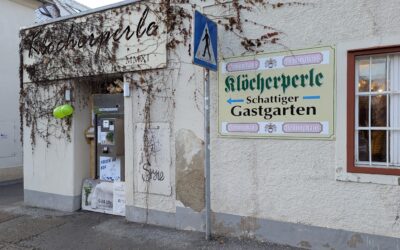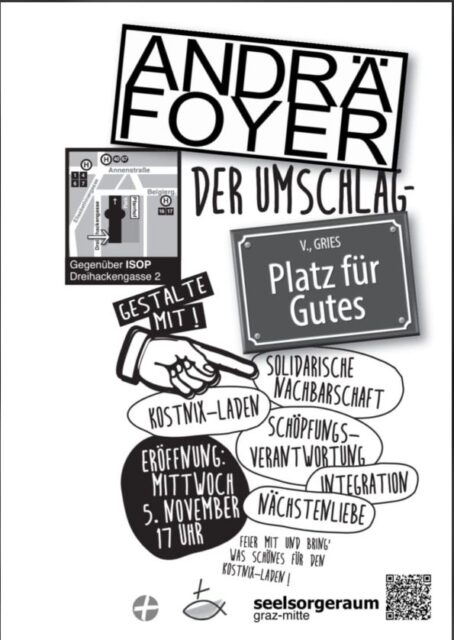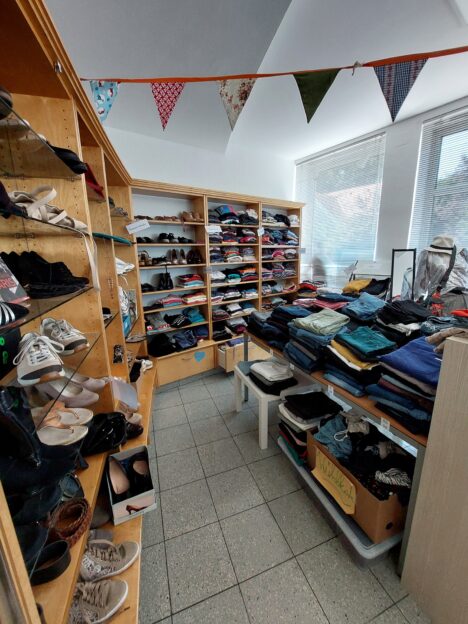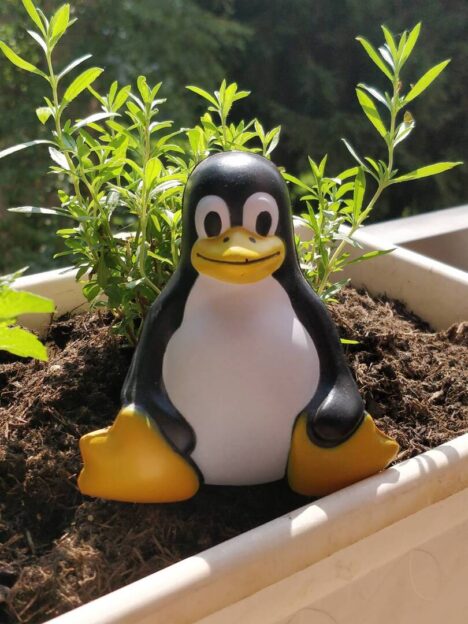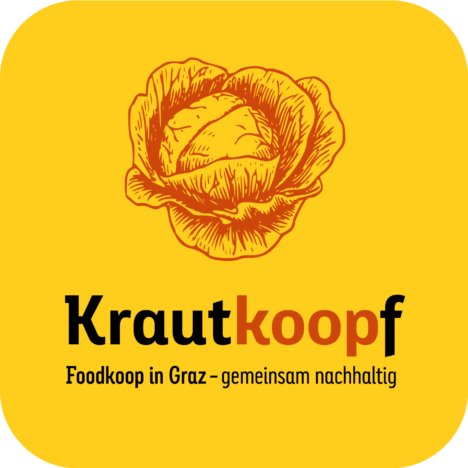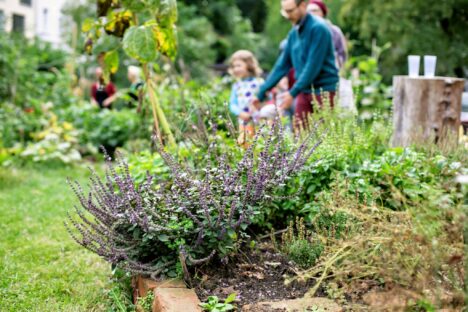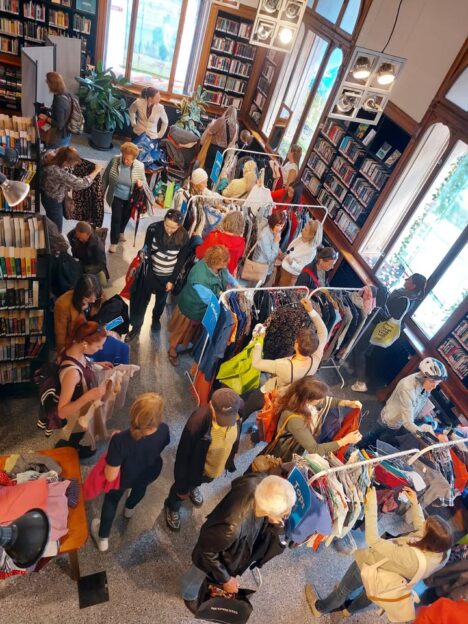Original post in German by barb on January 13, 2023 (Tipps gegen Lebensmittelverschwendung). Translated by Lisa Scheer in 2023/24.
Disclaimer: Some of the links in this post might redirect you to a site in German. Feel free to use Machine Translation (such as DeepL or Google Translate) to get the information provided on these sites.
Our awareness and actions have changed slowly. We now know that food is valuable and that we throw it away in large amounts while other parts of the world are starving.. It would be ideal if there was no overproduction to begin with, which would save a lot of ressources.
Food waste in numbers
According to a study by WWF, 40% of all food produced will never be eaten. A lot of food is lost during production and harvest because of damages occuring during harvest and transport, production shortages or „bad“ marketability. But also restaurants and private households end up throwing a lot of food into the bin. Community catering, canteens and buffets also create a lot of waste due to a surplus of offers and too large servings.
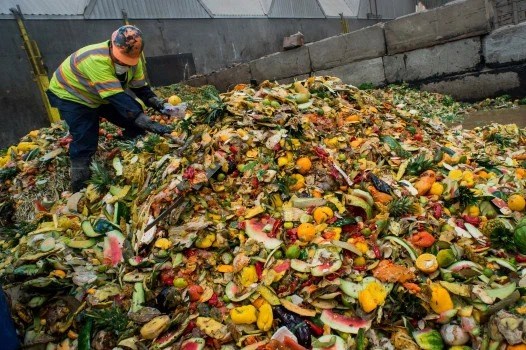
In Austria around 20% of the CO2-footprint is created through the consumption and production of food. One million tons of food end up in the bin in Austria every year. This also contributes to climate change, because food waste is the reason for 10% of global greenhouse gas emissions. Avoiding food waste therefore contributes to climate protection and lower use of area, water and energy.
Of course, politics also need to quickly take the needed steps to halve preventable food waste by 2030. The government agreed to this by accepting the SDGs.
Tips against food waste in households:
- Don’t buy more than necessary: This is the easiest if you go shopping with a shopping list and without being hungry. This makes it more likely that you only buy what you truly need. Moreover, it is better to buy less (not bulk packages that could go bad).
- From Leaf to Root: Instead of peeling apples and potatoes and removing leaves from root vegetables, you can eat everything. Peels often contain vitamins, leaves can be used in bread spreads or smoothies. Leftover vegetables can be cut up and be used for vegetable broths. Because of pesticide use we recommend only using organic or home grown vegetables. You can find our recipe for a Pesto made from carrot greens (recipe in German) here. Lemon peels used with vinegar are a potent detergent.
- Best before date (BBD): Use your senses to check if food is still good to eat. The BBD only provides a date until which the manufacturer of the product is liable for its shelf life. Unopened yoghurt and other foods often last a couple of weeks beyond the BBD. Guide on food shelf life
- Cooking remaining food: Plan dishes where you use up everything that is still in the fridge before you go shopping again.
- Using leftovers: Fruit and vegetables with bruises or rotten spots can be used for mush, compots, soups or cakes after removing these parts. Just pay attention to mold. Mold spreads without you seeing it.
- Storing food properly: Especially fruit and vegetables spoil more quickly because of bad storage.
- Properly stocking your fridge: different foods need different temperatures. Filling your fridge properly and putting older foods where you can see them and using them first so that they are not forgotten.
Further tips:
- Magic tip: For some shriveled-up vegetables, such as carrots or radishes, it is enough to put them into cold water for a couple of hours so that they become crunchy again.
- Preserve food, before it spoils: Freeze raw or cooked leftovers. Drying, fermenting and pickling might use less energy.
- Sharing food: Give superfluous food to family, neighbors, friends and co-workers or bring it to a Foodsharing-Fairteiler.
- Food can also be shared on the Facebooks groups „Dumpstern Graz“ and „Share & Care Lebensmittel Graz&Umgebung“.
- Inform your surroundings and share your knowledge on the topic (also talk about where you can find a Fairteiler)
- If possible, cultivate your own vegetables and fruit: that helps further the appreciation towards food. A couple of pots with herbs on the windowsill or a raised garden bed on the balcony are a great start to gardening.
Tips on how consumers can help companies throw away less food:
- Avoid „All you can eat“-buffets: there is often an overabundance and therefore potential that a lot ends up in the bin. Especially buffets with a lot of meat are questionable, because the production of meat creates a lot of CO2 (this also applies to stays at hotels)
- Pack your leftovers in cantines and restaurants.
- Support sustainable restaurants (especially vegetarian, vegan and organic ones and also partners of food rescue platforms).
- For food to be eaten soon: Buy ripe or imperfect fruit and vegetables and singular bananas. These are often left over and will probably end up in the garbage. Don’t always look for the most beautiful piece. You can also buy produce that are sold for half their price because they will reach their BBD soon. Like this, markets will not throw them away and you save money on top of that.
- Good yesterday’s bread: you can find it for half its price at Martin Auer (PANE, the revenue goes to a good cause) in Mariahilferstraße 11. Sorger at Franziskanerplatz 14 and Hubert Auer at Volksgartenstraße 2 sell yesterday’s bread.
- The customer is king: Let supermarkets know that it is okay that there is no big variety of choice in bread and fruit/vegetables in the evening.
- Become a part of foodsharing and save food that will be thrown away otherwise. (Foodsharing Graz)
- Ask stores what they do with leftover food (this should no longer be taboo).
- Download the app: Too Good To Go on your phone. Like this you can save food and full dishes for little money.
- Lidl offers a Rette-mich Box (box that saves food) for fruit and vegetables.
Do you have another good tip that should go onto our list? Write to us!
Sources:
- wwf.at/artikel/tipps-gegen-lebensmittelverschwendung/
- https://www.wwf.at/nachhaltig-leben/lebensmittelverschwendung/
- http://www.umweltservice.graz.at/infos/abfall/Lebensmittelweitergabe_Leitfaden.pdf
- https://www.nachhaltigkeit.steiermark.at/cms/dokumente/11899874_99598713/ae177cdb/Lebensmittel%20sind%20kostbar%21%20100%20Fakten%20%26%20Tipps_lebensministerium.pdf
- https://info.bml.gv.at/themen/lebensmittel/lebensmittelverschwendung/Lebensmittel-Mythen-Fakten.html
More interesting links on this topic:
- TICK-TOCK: Hungertote und Food Waste
- Storage tips for apples
- Guide on food shelf life
- Kühlschrank energiesparend verwenden
- Foodsharing-Fairteiler in Graz und Umgebung
- Foodsharing Graz
- Too Good To Go
- Rette-mich Box (box that saves food)
- Gärtnern in Graz
- Gerettete Lebensmittel erhalten
Anmerkung der NiG-Redaktion:
Falls du keine wichtigen Beiträge oder Termine von uns verpassen willst, abonnier doch bitte gerne unseren Newsletter! Er kommt unregelmäßig und nicht zu häufig – versprochen. Oder schau regelmäßig in unseren Veranstaltungskalender.
Wenn dir gefällt, was wir auf dieser Plattform tun, nämlich bereits seit 2017 über Nachhaltigkeit, Umwelt- und Klimaschutz zu informieren, dann unterstütz uns doch bitte auch finanziell, um unsere Website in dieser Qualität und Fülle weiterführen zu können – uns hilft jeder Beitrag!
Verein „Nachhaltig in Graz“
BIC: STSPAT2GXXX
IBAN: AT20 2081 5000 4200 1552
Verwendungszweck: Spende/Sponsoring (Mehr zum Sponsoring hier)
Du kannst dir auch gerne unsere kostenlose App aufs Handy laden, damit kannst du Informationen, Veranstaltungen und vieles mehr entdecken: App Nachhaltig in Graz




